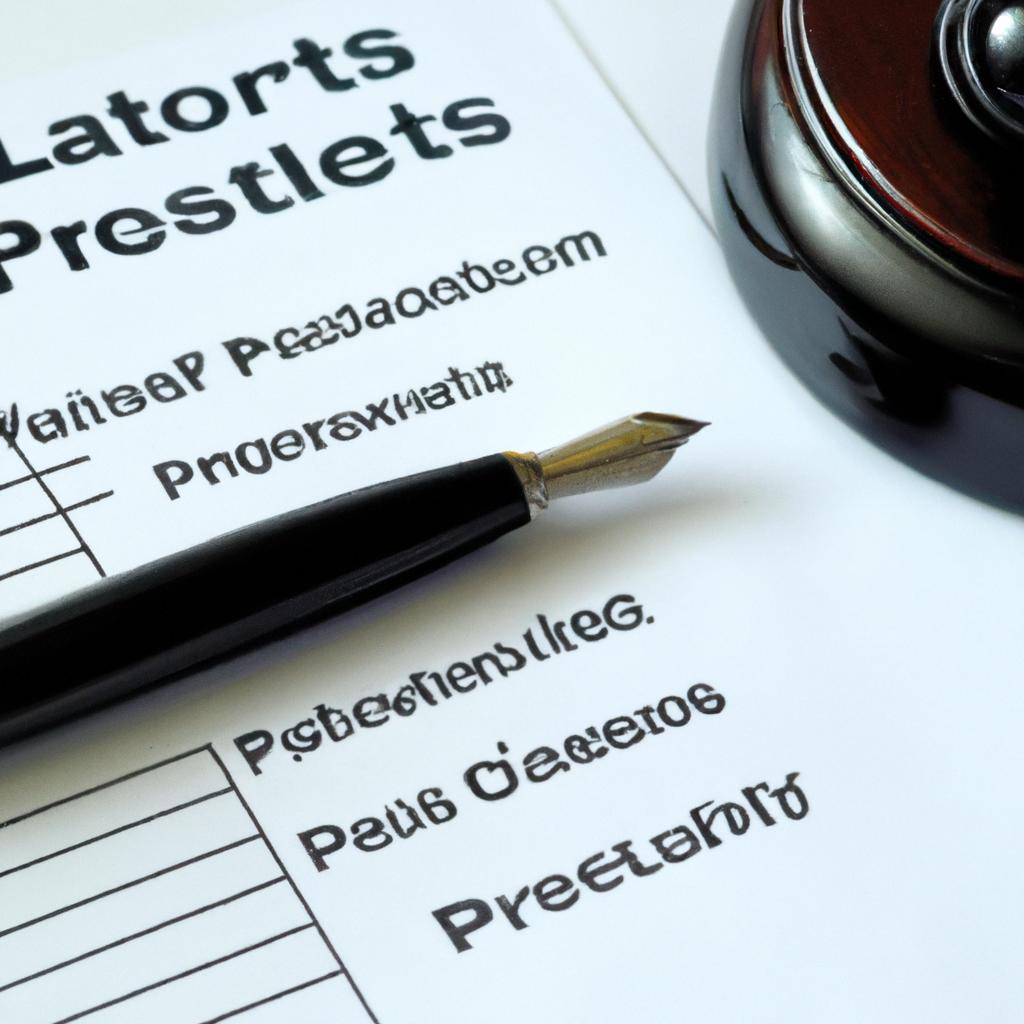Probate lists, often overlooked but invaluable tools in the administration of estates, serve as a roadmap guiding executors through the labyrinthine process of settling a deceased individual’s affairs. As seasoned attorneys at Morgan Legal Group, we understand the intricacies and importance of probate lists in ensuring a smooth and efficient distribution of assets to beneficiaries. In this article, we delve into the significance of probate lists and how they can streamline the probate process for our clients in New York City.
Understanding the Purpose of a Probate List in Estate Planning
When it comes to estate planning, having a probate list is essential for ensuring that all assets are properly distributed after a person’s passing. Understanding the purpose of a probate list is crucial in order to effectively carry out the wishes of the deceased individual. A probate list is a comprehensive inventory of all assets, including real estate, investments, personal property, and more, that will need to go through the probate process.
Having a probate list helps to streamline the probate process and avoid any potential conflicts or disputes among beneficiaries. By clearly outlining all assets and their respective values, a probate list allows for a smooth transfer of assets to the rightful heirs. It also helps the executor of the estate to fulfill their duties in accordance with the deceased individual’s wishes and state laws.

Key Components of a Comprehensive Probate List
:
When compiling a comprehensive probate list, it is crucial to include all necessary key components to ensure a smooth and efficient probate process. These key components serve as a roadmap for executors and beneficiaries to navigate the complexities of probate proceedings. Some of the essential components to include in a comprehensive probate list are:
- Assets Inventory: This includes a detailed list of all assets owned by the deceased, such as real estate properties, bank accounts, investments, and personal belongings.
- Debts and Liabilities: It is essential to list all outstanding debts and liabilities of the deceased, including mortgages, loans, credit card debts, and medical bills.
- Beneficiaries and Heirs: Clearly identify all beneficiaries and heirs entitled to receive assets from the estate, along with their contact information for communication purposes.
Additionally, a comprehensive probate list should include important legal documents such as the decedent’s Last Will and Testament, any trusts established by the deceased, and relevant insurance policies. Furthermore, it is advisable to include a timeline of key probate deadlines and court dates to stay organized and meet important filing requirements. By including these key components in a probate list, executors can effectively manage the estate administration process and ensure compliance with all legal obligations.

Benefits of Maintaining an Updated Probate List for Efficient Estate Administration
Having an updated probate list is crucial for efficiently managing estate administration. It helps ensure that all assets are properly distributed according to the deceased’s wishes, minimizing disputes and confusion among beneficiaries. By maintaining an accurate probate list, executors and administrators can also streamline the probate process, saving time and reducing unnecessary delays.
Additionally, an updated probate list can help identify any outstanding debts or liabilities that need to be settled before distributing the estate to beneficiaries. It allows for a thorough and organized review of the deceased’s assets, debts, and financial obligations. This level of detail can prevent any unexpected surprises or legal challenges down the road, providing peace of mind for all parties involved in the estate administration process.

Recommendations for Organizing and Reviewing Your Probate List Regularly
When organizing and reviewing your probate list regularly, it is crucial to maintain a structured approach to ensure all necessary tasks are completed efficiently. First and foremost, create a comprehensive checklist of all assets, debts, beneficiaries, and important documents related to the estate. This will help you stay organized and prioritize tasks effectively.
Additionally, schedule regular reviews of the probate list to update any changes in assets or beneficiaries. This will help prevent any oversights or errors that could delay the probate process. Consider seeking professional assistance from an experienced attorney, like Morgan Legal Group, to ensure that all legal requirements are met and the probate process runs smoothly.
Q&A
Q: What is a probate list?
A: A probate list is a compilation of assets and liabilities left behind by a deceased person.
Q: Why is a probate list important?
A: A probate list is important because it helps to streamline the process of distributing the deceased person’s estate to their beneficiaries.
Q: How is a probate list different from a will?
A: A will is a legal document outlining a person’s wishes for the distribution of their estate, while a probate list is a detailed inventory of the deceased person’s assets and liabilities.
Q: Who typically creates a probate list?
A: A probate list is usually created by the deceased person’s executor or personal representative as part of the probate process.
Q: What information should be included in a probate list?
A: A probate list should include all of the deceased person’s assets, such as real estate, bank accounts, investments, and personal belongings, as well as any outstanding debts or liabilities.
Q: How can someone access a probate list?
A: A probate list is typically filed with the court as part of the probate process and can be accessed by interested parties through the court system.
Future Outlook
In conclusion, navigating the probate list can be a daunting task, but with the right resources and guidance, it is possible to effectively manage the process. Remember to consult with legal professionals and keep organized records to ensure a smooth probate experience. Whether you are a beneficiary or executor, staying informed and proactive is key in handling the affairs of a loved one’s estate. Stay patient and vigilant as you work through the probate list, and may you find peace and closure in the journey ahead.










